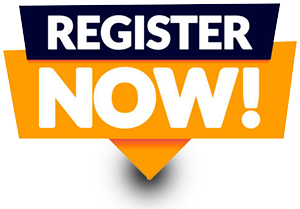Python Course in Bangalore BTM Layout, Vijayanagar; Master Python and Boost Your Career
Looking to become a Python expert? Check out our Python Course in Bangalore's BTM Layout & Vijayanagara! Learn from the best and get certified in no time. Boost your career today!
Python is a popular high-level programming language that is easy to learn, read, and write. It is used by developers, data scientists, and researchers to create various applications, websites, and tools. Bangalore is a hub of technology and innovation, making it an ideal place to learn Python. In this article, we will discuss everything you need to know about Python courses in Bangalore.
Why Choose Python Course in Bangalore?
-
Booming Job Opportunities: The demand for Python programmers has been increasing rapidly in recent years, with companies in various industries seeking professionals with Python skills. Bangalore is home to numerous startups, tech giants, and multinational corporations that require Python developers for various roles such as data analysis, machine learning, artificial intelligence, web development, and automation. Pursuing a Python course in Bangalore can provide you with the skills and knowledge required to land a lucrative job in the field.
-
Learning from Experts: Bangalore has a vast pool of talented and experienced Python developers who can serve as instructors and mentors for aspiring programmers. By enrolling in a Python course in Bangalore, you can learn from these experts and gain insights into the industry's best practices and trends. You can also network with fellow learners and industry professionals, which can help you advance your career.
-
Access to Resources: Bangalore has a vibrant tech community that provides a wealth of resources for Python learners. There are numerous meetups, hackathons, conferences, and online forums dedicated to Python and related technologies, where you can interact with like-minded individuals, share your knowledge, and learn from others. By pursuing a Python course in Bangalore, you can tap into these resources and enhance your learning experience.
Types of Python Courses
There are several types of Python courses offered in Bangalore, including:
- Basic Python course
- Advanced Python course
- Python for data science course
- Python for machine learning course
- Python for web development course
- Python for automation testing course
Eligibility Criteria
The eligibility criteria for Python courses in Bangalore vary depending on the type of course and the training institute. Generally, a basic knowledge of programming concepts is required, although some courses may have additional requirements.
Course Duration
The duration of Python courses in Bangalore can range from a few weeks to several months, depending on the type and level of course.
Comprehensive Python Curriculum
Python Course Outline: Real-World Application of Python
Desired Outcome: Students will be able to develop a real-world Python application using fundamental concepts, data structures, and libraries.
Project Plan: Develop a recipe recommendation system that suggests recipes based on user input and preferences.
Module 1: Introduction to Python Basics
Lesson Plans: 1.1 Learning Objectives: Introduce Python basics such as data types, variables, operators, and control flow statements. 1.2 Real World Examples: Show how Python is used in real-world applications such as data analysis and machine learning.
1.3 Activities: Introduce the Jupyter notebook environment and have students create their first Python program to print "Hello, World!"
1.4 Step-by-Step Directions: Walk students through the installation process of Python and Jupyter notebook.
1.5 Discussion Questions: What are some examples of real-world applications of Python? What are some benefits of using Python for programming?
Module 2: Data Structures and Functions
Lesson Plans: 2.1 Learning Objectives: Introduce data structures such as lists, dictionaries, and tuples. Explain functions, scope, and recursion.
2.2 Real World Examples: Explain how data structures and functions are used in real-world applications such as web development and game design.
2.3 Activities: Have students create a function to calculate the average of a list of numbers. Introduce data cleaning and manipulation using pandas library.
2.4 Step-by-Step Directions: Walk students through the process of creating functions and manipulating data using pandas.
2.5 Discussion Questions: What are some examples of real-world applications of data structures and functions? How can data structures and functions be used in data analysis?
Module 3: Object-Oriented Programming
Lesson Plans: 3.1 Learning Objectives: Introduce the concept of object-oriented programming. Explain classes, objects, and inheritance.
3.2 Real World Examples: Show how object-oriented programming is used in real-world applications such as game development and simulation.
3.3 Activities: Have students create a class to represent a recipe and its properties. Implement methods to manipulate the recipe object.
3.4 Step-by-Step Directions: Walk students through the process of creating classes and objects in Python.
3.5 Discussion Questions: What are some examples of real-world applications of object-oriented programming? How can object-oriented programming be used in software development?
Module 4: Libraries and APIs
Lesson Plans: 4.1 Learning Objectives: Introduce popular Python libraries such as NumPy, Matplotlib, and Requests. Explain how to use APIs to access data from the web.
4.2 Real World Examples: Explain how libraries and APIs are used in real-world applications such as data analysis and web development.
4.3 Activities: Have students use the OpenFoodFacts API to access recipe data. Use NumPy and Matplotlib libraries to analyze and visualize the data.
4.4 Step-by-Step Directions: Walk students through the process of installing and using libraries in Python. Explain how to use APIs to access data.
4.5 Discussion Questions: What are some examples of real-world applications of libraries and APIs? How can libraries and APIs be used in data analysis and visualization?
Module 5: Web Development with Flask
Lesson Plans: 5.1 Learning Objectives: Introduce web development using the Flask framework. Explain how to create web applications using Python.
5.2 Real World Examples: Show how Flask is used in real-world applications such as web development and data visualization.
5.3 Activities: Have students create a Flask web application that displays the recipe recommendations. Use HTML and CSS to style the application.
5.4 Step-by-Step Directions: Walk students through the process of creating a Flask application, connecting to the database, and rendering dynamic web pages using templates.
5.5 Discussion Questions: What are some examples of real-world applications of Flask? How can Flask be used to create web applications using Python?
Module 6: Final Project
Lesson Plans: 6.1 Learning Objectives: Provide students with the opportunity to apply their knowledge and skills in developing a real-world Python application.
6.2 Real World Examples: Show how Python can be used to develop a recipe recommendation system for a food blog or website.
6.3 Activities: Have students develop a recipe recommendation system using the knowledge and skills they have gained from the previous modules. Include a database to store recipe data, algorithms to recommend recipes based on user preferences, and a web application to display the recommendations.
6.4 Step-by-Step Directions: Provide students with a project rubric outlining the requirements for the final project. Offer guidance and support as needed throughout the project development process.
6.5 Discussion Questions: What are some real-world applications of recipe recommendation systems? How can Python be used to develop similar systems for other industries or domains?
Engaging Video Script Example for Lesson 1.1:
Welcome to Module 1 of our Python course! In this module, we'll be exploring the basics of Python programming. We'll cover topics such as data types, variables, operators, and control flow statements. By the end of this module, you'll be able to write your own Python programs and understand how they work.
But why learn Python? Python is a powerful programming language used in a wide range of industries, from data analysis and machine learning to web development and game design. Python is easy to learn and has a simple, intuitive syntax that makes it a popular choice among beginners and experienced programmers alike.
So let's get started! In this lesson, we'll introduce the basic building blocks of Python programming. We'll explain what data types are and how to use them, and we'll show you how to use variables to store and manipulate data. We'll also cover control flow statements, which allow you to control the flow of your program.
So why is this important? Understanding the basics of Python programming is essential for developing real-world applications. By the end of this lesson, you'll be able to create your own Python programs and understand how they work. So let's dive in and get started!
Enroll Now and Unleash Your Coding Skills with Python!
Learning Modes
Python courses in Bangalore are offered in various learning modes, including:
- Classroom training
- Online training
- Self-paced training
- Corporate training
Top Python Training Institutes in Bangalore
There are several training institutes in Bangalore that offer Python courses, some of the top ones are:
- PHILLOS Computer Training INSTITUTE
Python Course in Fees Bangalore
The fees for Python courses in Bangalore vary depending on the type and level of course, the training institute, and the mode of learning. On average, the fees can range from INR 16,000
Job Assistance and Career Support
Learning Python can open up a world of job opportunities in various fields, including:
- Software development
- Data science and analytics
- Machine learning and artificial intelligence
- Web development
- Automation testing
- Networking
Frequently Asked Questions (FAQs) about Python Course in Bangalore
Q: What are the prerequisites for enrolling in a Python course in Bangalore?
A: There are no specific prerequisites for enrolling in a Python course in Bangalore. However, basic computer knowledge and programming concepts can be beneficial. A passion for coding and an eagerness to learn can also help you succeed in the course.
Q: What is the average salary for a Python developer in Bangalore?
A: The average salary for a Python developer in Bangalore can vary depending on the level of experience and expertise. According to Glassdoor, the average salary for a Python developer in Bangalore is around INR 6 lakhs per annum, which can go up to INR 18 lakhs per annum for senior positions.
Q: Can I learn Python online instead of enrolling in a course in Bangalore?
A: Yes, you can learn Python online through various platforms such as Coursera, Udemy, edX, and Codecademy. However, enrolling in a Python course in Bangalore can offer additional benefits such as hands-on practice, personalized feedback, and networking opportunities. Additionally,
Python Course Duration
Regular Track - 45 days | 1 hours a day | Live Classroom
Python Course fees in bangalore
Call For more details - 9035885059
Contact US
BTM Layout
+91 962089 0035
Vijayanagar
+91 903588 5059
Our Specialities
Batch Flexibility
Students can choose a batch of their choice, weekend batches are available for working professionals
Very Less Fee Structure
Comapred to other institute fee structure here is very less
Effective Training
Practical Courses provide effective training since it covers all the areas of the course.
Certificate
Course Completion certificates will be issued after the courses
Course materials
Softcopy of course material will be given to every student
Placement Assistance
Placement support will be done after the course completion
Individual Support
Teachers can focus on the query of all students individually.
Live Training
While studying you will be working on live projects for better understanding.
Practical Training
courses are more focused on practical knowledge and Live Training rather than theoretical knowledge.
Courses Offered
Advanced Excel & MIS Course
vba & macros course
SAS Base & Advanced Course
Clinical sas Course
Statistical Analysis SAS Course
MSBI SSIS SSRS SSAS Course
Tableau Course
Business Analytics
Creative DESIGNING Courses
Fashion Disigning Course
Photoshop Course
Adobe illustrator Course
Corel draw Course
Graphic designing Course
Infographics Course
Web designing Course
Video editing Course
Audio editing Course
3D Animation Course





